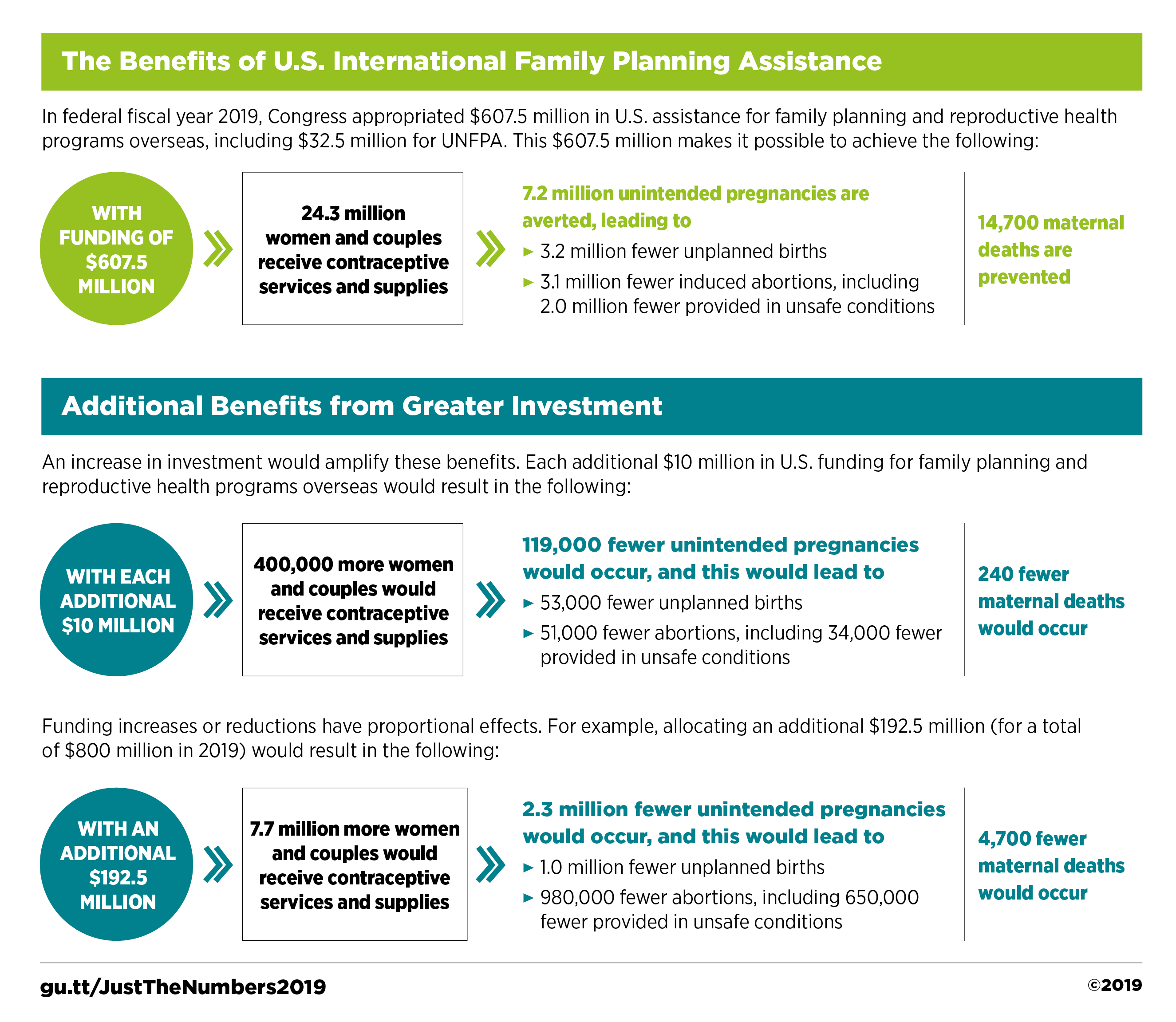This publication has been updated, please see here for the latest version.
Investments in sexual and reproductive health and rights have profound and measurable benefits. Addressing the full range of sexual and reproductive health needs and rights of all people at all stages of their lives is essential for maternal, newborn, child and adolescent health; gender equality and women’s well-being; and economic development and environmental sustainability.
Family planning is a fundamental component of comprehensive sexual and reproductive health. The United States—through the U.S. Agency for International Development (USAID) Office of Population and Reproductive Health—plays a critical role in improving access to voluntary family planning information, services and supplies in more than 30 countries where the need is greatest. USAID’s reproductive health efforts include integrating family planning with maternal and child health and HIV programming, and addressing cross-cutting factors—such as child marriage and gender-based violence—that shape individual, family and community sexual and reproductive health and rights.
The U.S. Congress has also designated a contribution to the United Nations Population Fund (UNFPA), an organization that supports the delivery of family planning services and maternal and child health care in more than 150 countries and whose activities complement the work of USAID. The Trump administration, however, decided to withhold this contribution to UNFPA; instead, those funds have been transferred to USAID for bilateral family planning, maternal and reproductive health activities, as required when designated funding to UNFPA has been blocked.
Full version with methodology and sources is available here.


